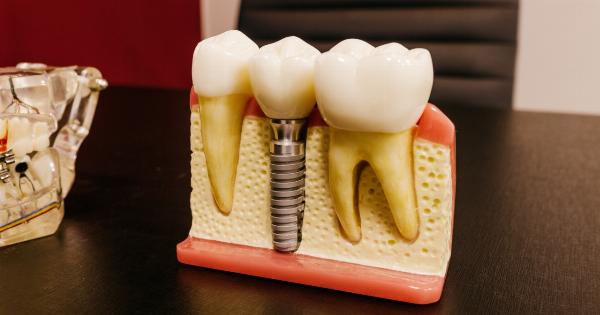Periodontitis is a serious gum infection that damages the soft tissue and destroys the bone that supports your teeth. If left untreated, it can lead to tooth loss.
This article will provide an in-depth understanding of what to watch out for when dealing with periodontitis.
Gum Inflammation and Bleeding
If you notice that your gums are swollen or bleeding, that could be a sign of periodontitis. It is essential to take this seriously, as untreated gum bleeding and inflammation can lead to periodontitis.
Bad Breath
A persistent bad breath that doesn’t go away with brushing and flossing could be another sign of periodontitis. The bacteria that cause this infection can make your breath smelly and unpleasant.
Receding Gums
Receding gums are another common sign of periodontitis. If your gum line is receding and showing more of your tooth, it could be an indication of advanced periodontal disease.
Loose Teeth
If your teeth feel loose or you notice that they are shifting, it is an indication of periodontitis. The infection causes the bone that supports your teeth to degenerate, causing tooth loss.
Painful Chewing
If you feel pain when chewing or biting, it could be due to periodontitis. The infection can cause the tooth roots and gums to become inflamed, leading to discomfort when biting down.
Pus around Teeth and Gums
If you notice pus or a yellow discharge around your teeth and gums, this is a sign that you have an infection. Treatment is necessary to prevent the infection from spreading and causing further damage.
Sensitivity to Hot or Cold
If you experience pain or sensitivity to hot and cold drinks, it could be due to periodontitis. The gum disease can cause the tooth roots to become exposed, leading to discomfort when consuming hot or cold drinks.
Bite Misalignment
If your bite feels off or you notice your teeth are not meeting correctly when you bite down, it could be a sign of periodontitis. This is because the gum infection can affect your bone density, causing changes in your bite and tooth alignment.
Mouth Sores
Mouth sores that won’t go away may be a sign of periodontitis. The bacteria that cause the infection can also create sores around your gums, teeth, or tongue. If you experience mouth sores, it’s best to get checked by a dentist.
Swollen Lymph Nodes
If you have swollen lymph nodes in your neck or jaw, it could be a sign of periodontitis. This is because the infection can spread to your lymph nodes, leading to swelling and discomfort.
Conclusion
Periodontitis is not something to take lightly. If you experience any of the above symptoms, it’s essential to get checked by a dentist as soon as possible.
Early detection and treatment can prevent the disease from progressing and causing permanent damage or tooth loss.



























